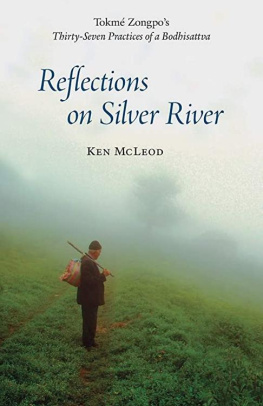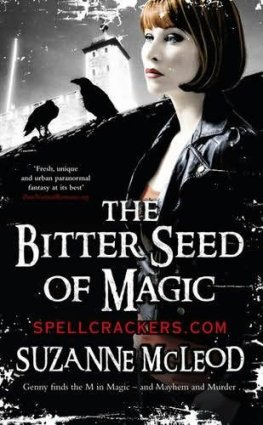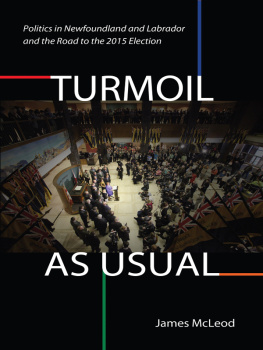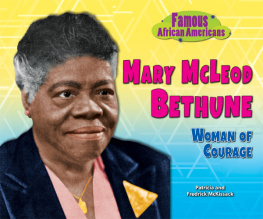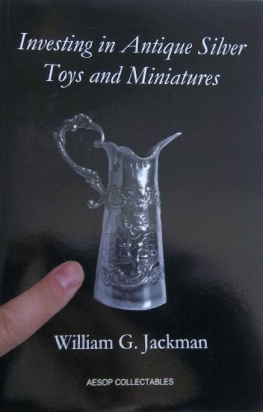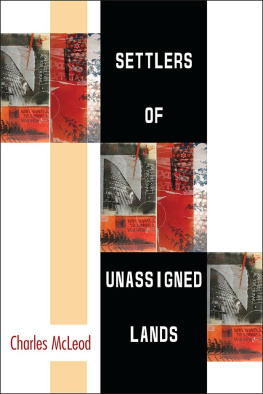Ken I. McLeod - Reflections on Silver River
Here you can read online Ken I. McLeod - Reflections on Silver River full text of the book (entire story) in english for free. Download pdf and epub, get meaning, cover and reviews about this ebook. year: 2014, publisher: Unfettered Mind, genre: Religion. Description of the work, (preface) as well as reviews are available. Best literature library LitArk.com created for fans of good reading and offers a wide selection of genres:
Romance novel
Science fiction
Adventure
Detective
Science
History
Home and family
Prose
Art
Politics
Computer
Non-fiction
Religion
Business
Children
Humor
Choose a favorite category and find really read worthwhile books. Enjoy immersion in the world of imagination, feel the emotions of the characters or learn something new for yourself, make an fascinating discovery.
- Book:Reflections on Silver River
- Author:
- Publisher:Unfettered Mind
- Genre:
- Year:2014
- Rating:5 / 5
- Favourites:Add to favourites
- Your mark:
- 100
- 1
- 2
- 3
- 4
- 5
Reflections on Silver River: summary, description and annotation
We offer to read an annotation, description, summary or preface (depends on what the author of the book "Reflections on Silver River" wrote himself). If you haven't found the necessary information about the book — write in the comments, we will try to find it.
Reflections on Silver River — read online for free the complete book (whole text) full work
Below is the text of the book, divided by pages. System saving the place of the last page read, allows you to conveniently read the book "Reflections on Silver River" online for free, without having to search again every time where you left off. Put a bookmark, and you can go to the page where you finished reading at any time.
Font size:
Interval:
Bookmark:

Reflections on Silver River: Tokm Zongpos Thirty-Seven Practices of a Bodhisattva
Translation and commentary by
Ken McLeod

Contents
Morning comes whether you set the alarm or not.
Ursula K. Le Guin
Introduction
If it is better for me to be ill,
Give me the energy to be ill.
If it is better for me to recover,
Give me the energy to recover.
If it is better for me to die,
Give me the energy to die.
Such was my first encounter with Tokm Zongpo of Silver River (Tib. rngul-chu thogs-med bzang-po ). I had been asked to translate The Great Path of Awakening , Jamgn Kongtrls commentary on Mind Training in Seven Points . Kongtrl had included this prayer as a supplement to the instruction Let go of hope and fear. It was the strangest prayer I had ever seen and it made no sense to me. Why would you pray to be ill? Why would you pray to die? There was no attribution (a common practice in Tibetan religious literature). I did not know where the prayer came from or who had written it. In the end, I just translated it as part of the text and did not think about it any further.
My next encounter was during my first three-year retreat in France. Our retreat director gave us copies of Tokm Zongpos Thirty-Seven Practices of a Bodhisattva (Tib. rgyal-sras lag-len so-bdun-ma) and suggested we study it. It was clearly a text of the lam-rim genre a sequential presentation of the Mahayana path as it was understood and practiced in the Tibetan tradition. Most texts of this genre run to hundreds of pages and cover largely the same material in greater or lesser detail, depending on the author. From my point of view, the only thing Thirty-Seven Practices had going for it was that it was mercifully short, a summary that covered the whole path in just thirty-seven verses.
In that retreat, I studied many different texts, gradually putting together the intricate baroque mosaic of Tibetan Buddhism. Tokm Zongpos name kept cropping up in odd places. Even though this person had clearly exerted considerable influence over the centuries, I was too caught up in my own challenges to pay much attention to yet another medieval scholar who had written yet another text about the bodhisattva path.
The intensity of practice in the retreat brought up deep-seated blocks that broke me physically and emotionally. Often I was too ill to do the assigned practices. Nothing I read helped, nor did any of the advice I received from my teacher or our retreat director. All I could do was endure the physical pain and emotional misery as best I could. I tried, without much success, to keep my mind from running amok. Not knowing what else to do, I turned to taking and sending (Tibetan gtong len , pron. tonglen), a practice I knew well. In Kongtrls commentary, the text I had translated before the retreat, I came across that strange prayer again:
If it is better for me to be ill,
Give me the energy to be ill.
If it is better for me to recover,
Give me the energy to recover.
If it is better for me to die,
Give me the energy to die.
Now it spoke to me. Physically I was beyond miserable and emotionally I was in even worse shape. I was afraid, too, because I did not see how I could go on. I kept hoping for a way out something, anything, that would dispel the pain and depression.
The prayer did not alleviate my physical or emotional distress. I just said it again and again, struggling to accept what was happening in me. I continued the practice of taking and sending because it is a practice you can do even when you are extremely ill or upset or both. Then something happened. To this day I am not sure what changed, but I do know that I gave up on my life. I gave up any hope that I would ever be happy or well again or I would ever be enlightened or awake or whatever you want to call it. Those possibilities were so utterly remote as to be nonexistent.
One spring day I stumbled out of my room for some fresh air. I could barely stand and had to lean against a tree for support. The acacia trees were in flower, white blossoms against a clear blue sky. The warmth of the sun dispelled the consistent chill of our cinder-block cells. As I looked around, I felt quiet in the joy of the moment and at peace in the pain. Then it hit me. This was the point of practice nothing more! Life presents you with different experiences. Every experience has infinite dimensions. Can you experience all of them without struggling against any of them? If you can, then suffering comes to an end so obvious, so simple, so deep, and so wonderful.
Even after the retreat, my struggles were far from over. I returned to this prayer again and again. Eventually, much to my surprise, I learned that Tokm Zongpo had written it when faced with a long, unrelenting and debilitating illness. The same prayer that had addressed the travails of a fourteenth century monk also spoke to me. Tokm Zongpo, it seemed, understood the human condition very deeply. I started to appreciate that he was more than just another medieval scholar. He knew how to accept all that life offered, the good and the bad, and not lose his humanity.
Born in 1295 in Central Tibet, Tokm Zongpo was orphaned at an early age. His mother died when he was three, his father two years later. His grandmother then looked after him. When she died four years later, an uncle took him in. From his uncle, he learned how to read and write (a rare accomplishment for an ordinary Tibetan in the fourteenth century). Encouraged by his uncle, he entered monastic life at the age of fourteen. From these humble beginnings, Tokm Zongpo emerged to become a prodigious scholar, a respected abbot, a devoted practitioner, and an icon of compassion.
While a young monk in the Kadampa tradition, Tokm Zongpo quickly mastered the classical curriculum. By the time he was nineteen, he was being hailed as a second Asanga, his namesake, the great fourth century Indian master (Tokm is the Tibetan for Asanga).
Life in a Tibetan monastery in the fourteenth century was far from easy. While monasteries usually provided food and shelter, for all other expenses from basic personal needs to offerings for training and teaching a monk depended on relatives, patronage, or the performance of rituals and empowerments to attract offerings. Tokm Zongpo had no relatives and his humble and quiet manner did not attract patrons. When he had difficulty in making ends meet, he was advised to perform rituals for the villagers or give empowerments. Such a materialistic approach using spiritual ceremonies for financial gain was unthinkable to him. Instead, he sat down and wrote a poem to remind himself of the essential practices of his chosen path. That poem comes down to us today as Thirty-Seven Practices of a Bodhisattva.
When he was thirty-two, Tokm Zongpo was appointed abbot of a monastery. Nine years later, he refused a subsequent appointment, insisting that a better person be found. Retiring to a hermitage in Nglchu (Silver River), he devoted himself to practice for the next twenty years. Instances of his compassion became legend in Tibet. Beggars refused to take alms from him because they knew he would give them his last cup of barley flour or the robe off his back. Soldiers stopped their attacks when he was present. Wolves and sheep played peacefully together in front of him.
Many years later when I was living in Los Angeles, I went to hear Garchen Rinpoche teach. Here was a person who knew what it was to suffer on a level very different from the challenges I had faced in retreat. He had spent years in a Chinese prison in the harshest conditions hard labor, rags for clothes, unspeakable food. One of the most respected dzogchen teachers of the twentieth century was in the same prison. Garchen Rinpoche was able to study with him, even though prisoners were not allowed to talk with each other. Practice reports and practice guidance consisted of one-sentence or one-word grunts as they passed each other in the hallways. Today Garchen Rinpoche radiates a peace and compassion that can come only from deep understanding and experience. He hands out copies of Thirty-Seven Practices to everyone who comes to hear him teach. It is a text he treasures above all others. Clearly I had missed something.
Font size:
Interval:
Bookmark:
Similar books «Reflections on Silver River»
Look at similar books to Reflections on Silver River. We have selected literature similar in name and meaning in the hope of providing readers with more options to find new, interesting, not yet read works.
Discussion, reviews of the book Reflections on Silver River and just readers' own opinions. Leave your comments, write what you think about the work, its meaning or the main characters. Specify what exactly you liked and what you didn't like, and why you think so.

